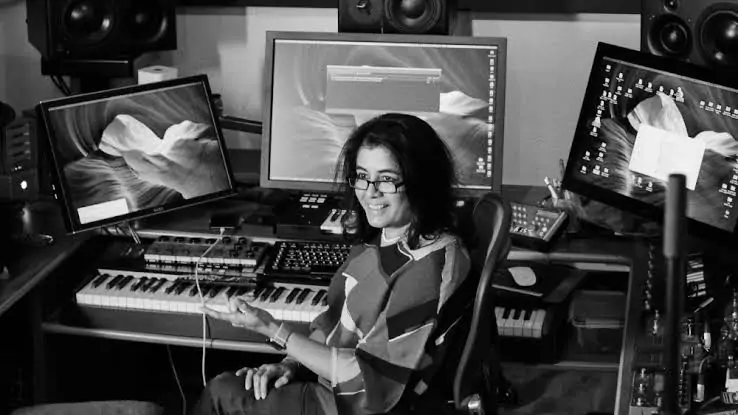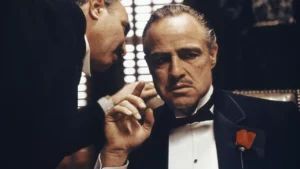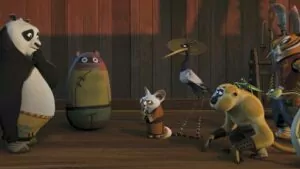DATE : 8TH OF JANUARY 2021

BAFTA Breakthrough Brit Nainita Desai is not just a film composer but a BAFTA Award Nominated Composer whose recent film The Reason I Jump tries to infuse Movie Composing with Sound Design.
The Movie Culture was lucky enough to get her word on working with the film before it becomes a sensation after release. You might have also heard her magical composition in Bad Boy Billionaire, a Netflix Original Documentary which was quite successful in India.
Greetings Ms. Desai, we at The Movie Culture are thrilled to have you. We couldn’t be more excited to see your work in The Reason I Jump
Q. We’d like to start off this interview by asking you about The Reason I Jump, could you tell us about how your first got attached to the project as a whole?
Nainita Desai: I met the director Jerry Rothwell at a film festival about 4 years ago. I had watched his film Sour Grapes and we ended up having a great chat about film and other stuff. He then called me 2 years later out of the blue about scoring The Reason I Jump! I think he wanted someone that had experience of working with found sound and having a background as a sound designer on feature films really helped me on this journey.
Q. As a Composer, what do you think of before embarking on a project such as The Reason I Jump or any for that matter?
Nainita Desai: I love researching the subject matter and coming up with ideas and sounds. I listen to lots of music, watch films, and read books. I try to dig beneath the surface of the project to find the heart of it and try to come up with a concept that is inextricably linked to the storytelling. If I watch a rough cut of a film or read the script, the tone, pace of the edit and look of the film will influence my score.
I’ll also think about the musicians I’m going to use on a project. With this film, we wanted to give the characters their own unique instruments. Jestina’s sound is the playful Halo Handpan, the cello suited Joss, and Ben and Emma share the double bass and guitar between them, which suits their characters.
The sound palette consists of manipulating found sound taken from the film’s location sound, human voice, strings and other organic and treated elements such as the clarinet and saxophone.
A lot of material stems from the cello and violin recording sessions. There is layered improvised warmth of cellos and violins. I got to bring in an incredible violinist Daniel Pioro, who also played on key moments.
Q. The Reason I Jump is a Documentary, how does it differentiate from scoring a Fictional Film? Any stories from behind the scenes?
Nainita Desai: Actually, there isn’t that much of a difference between feature documentaries and narrative fiction!
I write in a thematic way, and try to write a score that gels the story together. However, there can be a lot more music in docs than fiction, and the music has to be more subtle at times, as it needs to work under a lot of dialogue normally. This film is different in that there are many beautiful poetic scenes and space for the sound design and music to help immerse the audience into the world of the autistic characters. Jerry didn’t actually want that much dialogue in the film!
I wanted authenticity towards Autism and Neurodiversity, so I brought in Elisabeth Wiklander, a cellist with the London Philharmonic Orchestra. She is autistic herself and a cultural ambassador for the National Autistic Society. Her contribution to the score was very personal and has great sensitivity.
Q. To elaborate on my previous question, please tell us about interwoven Sound Design and Score for The Reason I Jump? The idea behind and how you executed it?
Nainita Desai: Jerry the director wanted me to create a cinematic immersive aural experience to represent the world of Naoki and his writings. We wanted to blur the lines between music and sound design where they work hand in hand, illustrating and amplifying what it actually felt like to be autistic for the contributors in the film.
Every element of the score mirrored the characters’ experiences of being autistic. For example, Naoki perceives the detail in objects before seeing the whole picture unfold. So, I created pieces formed of seemingly random broken musical elements that then formed a whole coming together like pieces of a jigsaw puzzle.
Another perception of their world is the use of repetition, so I worked with found sound elements from the location sound recordings to create these circular oscillations in the score. You can hear it in the opening lighthouse sequence and Amrit’s introduction with the circular ceiling fans and pulsing polyrhythms that fused with the sound design. Amrit rocks back and forth, to the movement of ceiling and table fans, and the sounds of the fans and other percussive found sound elements from the location create a rhythmic foundation out of which grew a musical piece to evoke the sense of cathartic release.
I also wanted to give the characters a musical voice, so I used my own voice throughout the score. I took some key phrases from the book, and translated them back into the original Japanese. I then broke them down into smaller elements and recorded the broken-up phrases, deconstructing and then reconstructing them, with various treatments and layering.
You can hear phrases such as “we are outside the flow of time” or “beautiful circle” sung in Japanese in an abstract fractured way to mirror this internal world of the characters.
Q. To state it, I’m talking to BAFTA Breakthrough Brit, Nainita Desai. How surreal of an experience must that be?
Nainita Desai: Being acknowledged by BAFTA as a Breakthrough was a truly special moment for me!
I am incredibly humbled and grateful for the opportunities that have come out of this accolade. It has enabled me to work with some incredibly visionary creatives in the industry.
And of course, I sometimes get out of the studio and attend awards ceremonies and film festivals, which is like the icing on the cake! The most important thing for me though is the work. I just love working with interesting people on amazing projects.
Q. Soundtracks in films are incredibly influential, and many directors look to a composer to elevate their work. How closely you did you work with Jerry Rothwell on this?
Nainita Desai: I love the creative collaboration process and coming in early onto a project to have those creative discussions. I started work with Jerry very early on during the filming. I wrote a lot of musical ideas and experiments over the 12 months, based on the key ideas in the book without even seeing the film, which was a very liberating process. I’m very visually inspired, so when I see images, I instantly know what to write because it informs me in a certain way. But I also really enjoy being a part of the early DNA of films.
So, I wrote many pieces not even having seen any images. The director and editor then edited with my musical experiments. I brought in musicians at various stages and also held semi-improvised recording sessions which helped inform the music writing process further, taking me off onto new musical branches. So, I was delving into the unknown on this one. The writing process on this film evolved in a much more organic way.
Q. At this point of your career, what kind of movies do you want to compose for going forward? Maybe a Tent-pole blockbuster?
Nainita Desai: I’m open to all genres of projects! Basically, I want to work on projects that excite me creatively, and allow me freedom to experiment. I’m also interested in working with all creative filmmakers working on the edge of creativity and hybrid art forms. I like projects that push me to write in different musical and film genres.
Q. I for one is loving the score for The Mandalorian by Ludwig Goransson, do you have any favorite scores for Movies you listen often to?
Nainita Desai: I am enjoying so many different styles of music all the time including many film scores. So, music that’s currently on my playlist is The Duke of Burgundy, Max Richter’s Sleep, and Athlete A.
One of my current favourite TV composers is Sean Callery—the scores for Jessica Jones and Homeland are superb. I love that style of modern Jazz. Johann Johannsson was visionary and I have always admired Ennio Morriccone, John Williams, and Thomas Newman’s music.
Q. What was the inspiration behind taking up Composing? Is there an Individual who inspired you or a Film?
Nainita Desai: I love the marriage between music and film. Growing up, I was totally immersed in all styles of music – from Indian classical and world music to pop, classical and film scores. I was a huge fan of Peter Gabriel, Joni Mitchell, Kate Bush, Jean Michel Jarre, Bach, Debussy, and John Barry.
Film and music transported me to another world and I was always singing, improvising and composing my own songs and pieces on the piano and guitar.
I was also deeply interested in filmmaking as well and ended up going to film school to study sound.
At University, I studied Mathematics. I was the film critic for the student newspaper so I got to attend all the private film screenings for film journalists! I loved the French New Wave of filmmakers such as Luc Besson, the Coen Brothers, and Spielberg.
Q. The Movie Culture is situated in India and since Bollywood is a hub of producing major music we’d like to know how you feel about the Bollywood music?
Nainita Desai: I grew up loving the golden age of Bollywood movies! Growing up in London, my parents used to take me to the screenings of those films every Sunday afternoon. I loved the catchy songs and it’s definitely a part of my DNA. I grew up enjoying Sholay and Chalte Chalte, Bobby and Khabi Khabi.
Netflix has arrived in Mumbai and I’m excited to see how they are slowly changing the landscape of TV in India. I recently score Bad Boy Billionaires which was No. 1 on Netflix in India. We tried hard to create a dynamic hybrid of western orchestral music that had an influence of Indian elements. I hope to see background music be more valued alongside the use of songs in films and I’d like to see more female composers coming up in the industry too.
Q. Do you have any future projects lined up which you’d like to share with us and your fans?
Nainita Desai: I have a few series for Netflix, Sky and the BBC and several features that will come out in 2021. They all cover different musical styles and subject genres I’ve never written for before, so I’m very excited about those. I’m also working on 2 video games that will come out in 2021 and 2022 which are REALLY different musically and very exciting!
Q. There’s a whole lot of competition in the industry, do you have any piece of advice which you’d like to share with talents reading this interview?
Nainita Desai: If you want to compose for film, then watch and study film! You have to be prepared to play the long game and to never give up. Learn to embrace music technology, software.
It’s also really important to develop your own musical voice and to stand out from the noise of the thousands of other composers. Grab a microphone and record and create your own sounds.
You also need to have a thick skin! Learn to take criticism in a positive way and learn from it. The most important thing is you have to serve the film and work as part of a team. It’s a very collaborative art form.
With this we would like to wrap up with the interview questions. The Movie Culture would indeed like to thank Ms. Desai for agreeing to this wonderful interview.
The Movie Culture Synopsis
It is always a joy to Interview a fellow person of Indian Origin who by the looks of it, is conquering the world of Cinema every passing day.
Some Bollywood music which Desai mentions in her Interview is definitely classics and we all have grown up listening to their soundtracks.
With her Indian roots and her strong love for Western musical Maestro’s such as Williams, Morricone and Newman makes hopefully makes her work stand out from the rest.
Find Nainita Desai’s music Centre stage in the documentary The Reason I Jump which has its initial release set for 25th January 2021 as the film is boost by a stellar 100% Rotten Tomatoes score leading up to it’s release.



